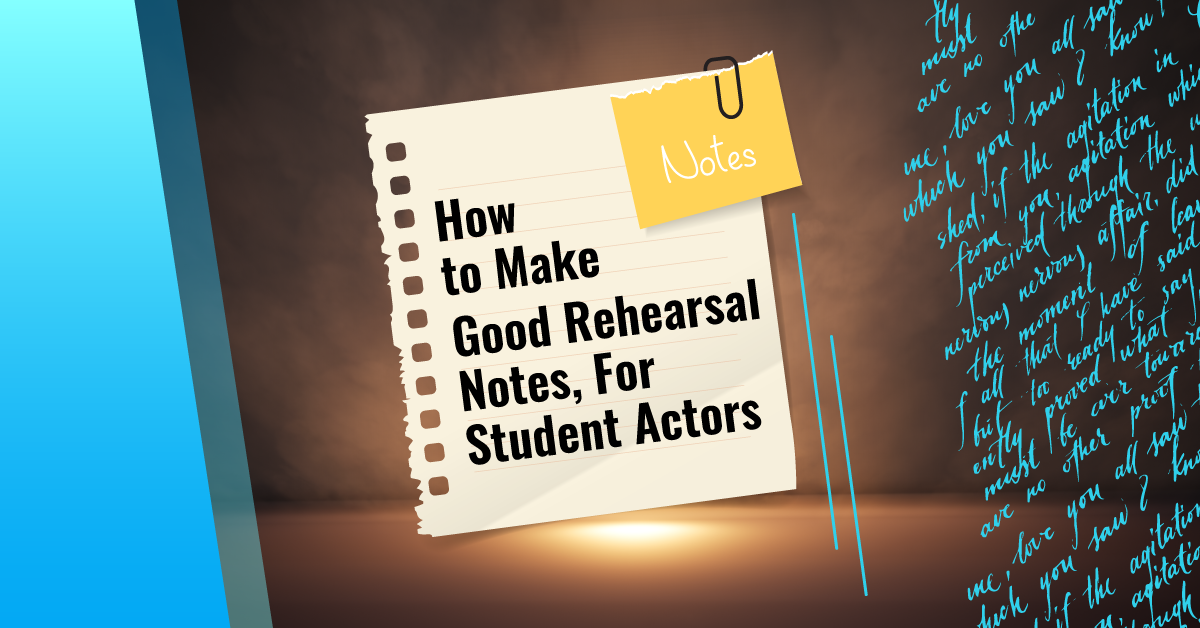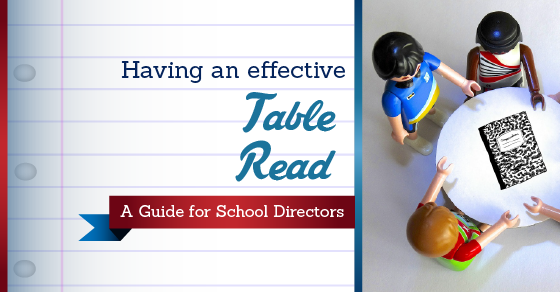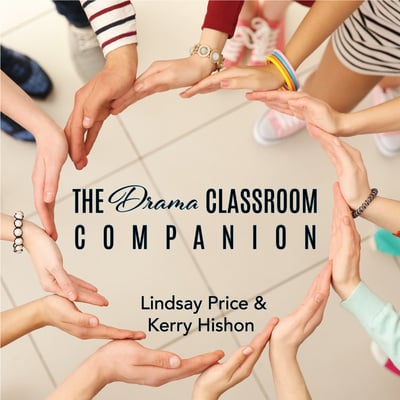There exists in everyone the potential for good or evil. Laramie Dean's adaptation of Dracula asks the question: How much would it take to bring out the darkness inside of you?
How to Make Good Rehearsal Notes, For Student Actors
As a director, I cannot stress enough to my students how frustrating it is to have to give the same note over and over during rehearsals. It feels like I’m not being listened to, and it wastes time. On top of that, I know how frustrating it is for my students to hear the same note over and over. To students, it can feel like they’re being nagged or picked on, and eventually they may just stop trying. How can you alleviate this problem? By teaching students how to make good rehearsal notes!
It’s so satisfying to look over a script that’s been marked up, noted on, and well used. The script is an actor’s tool, after all, and tools are meant to be used. They’re not meant to stay pristine like the day they’re handed out. And it’s equally frustrating to not only find a script that’s been left behind after rehearsal, but one that looks like it’s barely been opened, let alone written on.
Writing notes on a script not only helps to identify whose script it is (hot tip, students: write your name on the front of your script!), but also shows that the student is putting thought and effort into their onstage performance.
There are lots of different ways for student actors to make rehearsal notes, and there’s no one right way.* But there is a wrong way — not taking notes at all. Any notes are better than no notes. Ultimately, the best notes are the ones that the student understands, that they will remember, and that they will apply to their performances.
Here are our top seven note-taking tips to share with your student actors. There’s a printable version available below, so you can print out the tips and hand them out to your students at your next rehearsal.
1. Write out physical notes in your script. Always use a pencil — your director may ask you to change something later. Physically writing the notes out will help them stick in your brain — it’s all about muscle memory. If you type faster, you might try making notes on your phone or dictating notes into a voice recording app. However, be sure to go back and copy any digital notes into your script by hand. (Many directors don’t allow phones in rehearsal, so get into the habit of writing your rehearsal notes by hand.)
2. Don’t rely on your memory. Make notes the moment you receive them. If you try to remember them for later, you won’t. Yes, you do have to eventually memorize your lines and cues, but when you’re first hearing your notes and doing the initial work, make your life easier and write your notes down right away so you don’t forget them.
3. Be precise. Write notes where they happen in the script. For example, if you enter in the middle of someone’s line, make a mark (such as a circle or an arrow) at the exact moment during their line when you enter.
4. Write notes that make sense to you. You might choose to write out full, descriptive sentences, or use shorthand (for example, XDS for cross downstage). You might draw pictures or diagrams of where you need to move. You are the one who needs to understand and apply the notes, so try different approaches until you find a note-taking system that works for you.
5. When receiving line notes, circle or underline the words that you missed , so you can ensure your lines are word-perfect while you’re reviewing. You also might find it helpful to circle or underline a few key words in your scene partner’s cue lines to help jog your memory.
6. If you are performing in a musical, be sure to make notes about music and choreography , even if there are rehearsal recordings. Circle your harmony notes and write out or draw a basic outline of your moves, and note where in the script they occur.
7. During a post-run note session, listen to everyone’s notes, not just your own. You might find that you can apply certain notes others receive to your performance as well. Write down anything your director mentions multiple times — clearly, it’s something they think is important. Treat a note session like a free acting masterclass — the information is there, so use it!
Again, the best notes are the ones that the student understands, that they will remember, and that they will apply to their performances. You may have to verbally remind students to take notes, provide pencils for them to write with, and give up a few precious minutes of rehearsal time for students to scribble down notes in their scripts. However, getting students into the habit of making rehearsal notes will only be a benefit — less stress, fewer frustrations, and more confident performances.
* Remember that this is aimed at student actors — a stage manager (whether student or staff) must have extra-clear notes so that anyone could pick up their prompt binder and call the show from it. Check out our post How to Prepare a Stage Manager’s Prompt Book for more on that.
Additional Resources:
Related Articles
The Drama Classroom Companion
by Lindsay Price & Kerry Hishon
The Drama Classroom Companion is filled with articles and exercises to build the skills needed for theatrical performance as well as real world skills like creative thinking, critical thinking, collaboration, and communication.
The Rehearsal Companion
by Kerry Hishon
You’ve chosen the play, paid the royalties, done the script analysis, held your auditions, and cast the show. Tomorrow is the first rehearsal. Are you ready? Really ready? The Rehearsal Companion can help!





